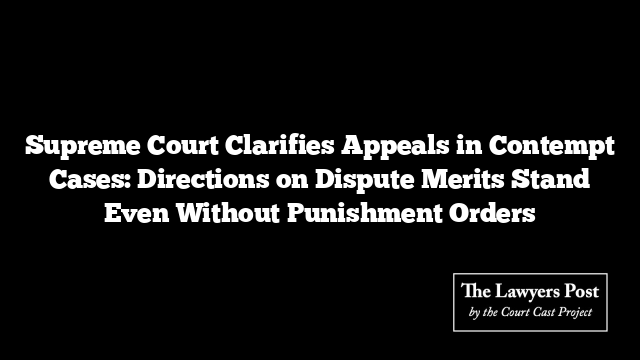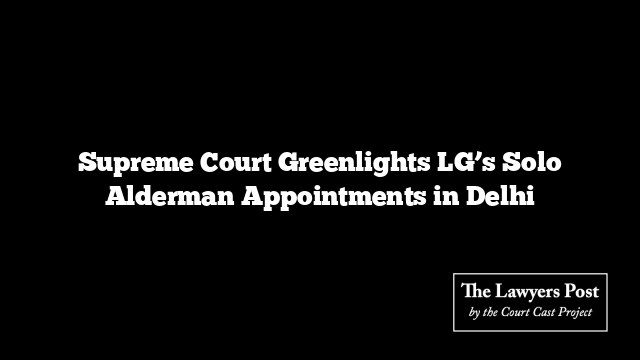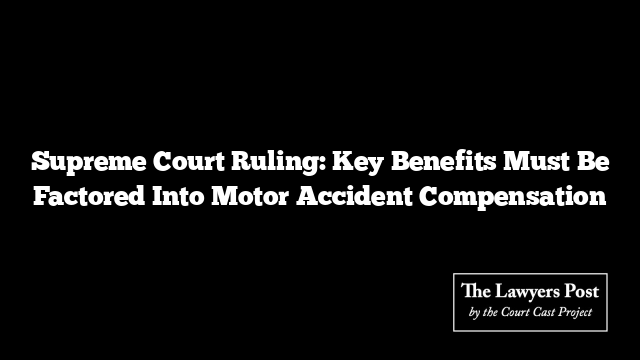The Supreme Court has affirmed that under Section 19 of the Contempt of Courts Act, 1971, appeals are permissible against directions regarding the merits of a dispute, even in the absence of a punishment order. This ruling emerged from a bench consisting of Chief Justice of India DY Chandrachud, Justice JB Pardiwala, and Justice Manoj Misra.
The bench emphasized that while an appeal is generally not maintainable without a punishment order, directions pertaining to the merits of a dispute in contempt proceedings can indeed be appealed. This clarification came during a case involving disciplinary actions against a Central Reserve Police Force officer.
The officer, initially dismissed in 1995, had his appeal against the punishment rejected. He then challenged the decision under Article 226 of the Constitution before the Delhi High Court, which ruled in his favor in December 2019, ordering his reinstatement with full benefits. However, the reinstatement was delayed, prompting the officer to initiate contempt proceedings.
Despite the eventual compliance with the reinstatement order in March 2021 and a promotion to Deputy Commandant, the High Court’s single judge found the authorities guilty of willful disobedience for not implementing the 2019 order promptly. The judge ordered that the officer be promoted to Inspector General retroactively.
The authorities filed a Letter Patent Appeal against this single judge’s decision, but the division bench dismissed it, stating the appeal was not maintainable due to the lack of a punishment order. The matter escalated to the Supreme Court, which referred to the precedent set in the Midnapore Peoples’ Coop. Bank Ltd. case. This case established that appeals under Section 19 are valid when directions regarding the dispute merits are issued, regardless of punishment.
The Supreme Court ruled that the findings of the single judge regarding the officer’s entitlement to promotion were subject to appeal. It noted that while the contempt findings themselves do not fall under Section 19, directions related to the dispute merits do.
The division bench’s dismissal was overturned, and the case was remanded for a fresh hearing on merits. The Supreme Court has instructed that no coercive actions be taken against the authorities until the next hearing date before the Delhi High Court.





